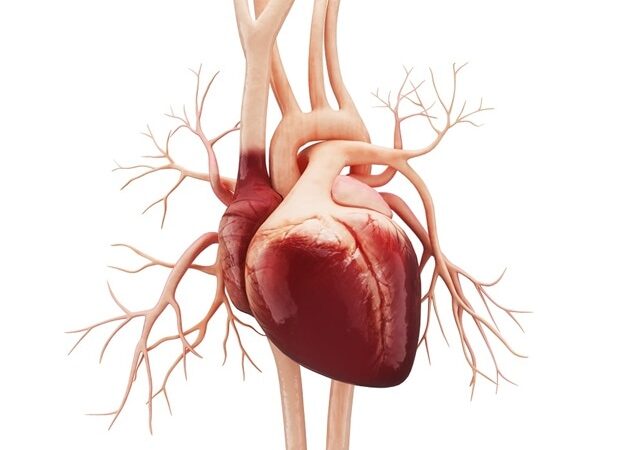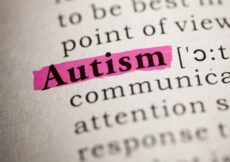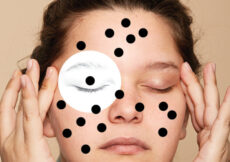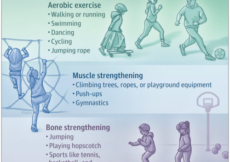About 80% of people in the U.S. have low to moderate cardiovascular health based on the American Heart Association’s new Life’s Essential 8™ checklist according to a new study published today in Circulation, the Association’s flagship, peer-reviewed journal. Life’s Essential 8™, also published today in Circulation, details the Association’s updated guidance to measure cardiovascular health, adding healthy sleep as essential for ideal heart and brain health.
The Life’s Essential 8™ metrics are incorporated into the Association’s My Life Check tool to determine a cardiovascular health score based on eight essential components for ideal heart and brain health: diet, physical activity, nicotine exposure, sleep duration, body mass index, blood lipids, blood glucose and blood pressure.
It is an updated algorithm from the scientifically proven Life’s Simple 7™, which did not include sleep heath. Life’s Essential 8™ also updated some of the previous version’s metrics to be more sensitive to differences among groups of people.
In adults, overall cardiovascular health is calculated for each individual by summing the scores for each of the 8 metrics together and dividing the total by 8, to provide a Life’s Essential 8™ score ranging from 0-100. Thus, the highest or healthiest cardiovascular health score possible is 100. Overall scores below 50 indicate “low” cardiovascular health, 50-79 is considered “moderate” and scores of 80 and above indicate “high” cardiovascular health.
According to this first study using Life’s Essential 8™ as the measure for cardiovascular health, among more than 23,400 U.S. adults and children free of cardiovascular disease, the overall cardiovascular health of the U.S. population is well below ideal, with 80% of adults scoring at a low or moderate level. Researchers evaluated health information from the U.S. National Health and Nutrition Examination surveys in 2013-2018 that included more than 13,500 adults (ages 20-79 years) and nearly 9,900 children (ages 2 to 19 years).
The analysis found:
- Life’s Essential 8™ aligns with Life’s Simple 7™, however, it was more sensitive to differences in cardiovascular health among groups of people and individuals.
- The average cardiovascular health score based on Life’s Essential 8™ was 64.7 for U.S. adults and 65.5 for U.S. children. The children’s average took into consideration age-based modifications for metrics in diet, physical activity and BMI for children ages 2 through 19 years.
- Only 0.45% of adults scored 100 on Life’s Essential 8™.
- 19.6% of U.S. adults had high cardiovascular health; 62.5% moderate; and 17.9% low.
- Adult women had higher average cardiovascular health scores, of 67, compared to men, with a score of 62.5.
- In general, U.S. adults scored lowest in the areas of diet, physical activity and BMI.
- Cardiovascular health scores were generally lower at older ages.
- Individuals who identify as Non-Hispanic Asian Americans had a higher average cardiovascular health score than other racial/ethnic groups. Non-Hispanic White individuals had the second highest average cardiovascular health score, followed, in order, by Hispanic (other than Mexican), Mexican, and Non-Hispanic Black individuals.
- Children’s diet scores were low, at an average of 40.6.
- Adult sociodemographic groups varied notably in cardiovascular health scores for diet, nicotine exposure, blood glucose and blood pressure.
These data represent the first look at the cardiovascular health of the U.S. population using the AHA’s new Life’s Essential 8™ scoring algorithm.”
Donald M. Lloyd-Jones, MD, ScM., FAHA, Study Lead Author and President, American Heart Association
Lloyd-Jones is also the chair of the department of preventive medicine at Northwestern University’s Feinberg School of Medicine in Chicago.
“Overall, the cardiovascular health of the U.S. population is suboptimal, and we see important differences across age and sociodemographic groups. Analyses like this can help policy makers, communities, clinicians and the public to understand the opportunities to intervene to improve and maintain optimal cardiovascular health across the life course.” Lloyd-Jones is also the Eileen M. Foell Professor of Heart Research and professor of preventive medicine, medicine and pediatrics at Northwestern.
Source:
Journal reference:
Lloyd-Jones, D. M., et al. (2022) Status of Cardiovascular Health in US Adults and Children Using the American Heart Association’s New “Life’s Essential 8” Metrics: Prevalence Estimates from the National Health and Nutrition Examination Survey (NHANES), 2013-2018. Circulation. doi.org/10.1161/CIRCULATIONAHA.122.060911



































